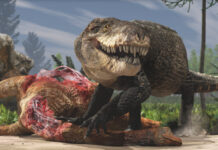
After Death
What happens when we die? For centuries we have tried to peek behind that opaque curtain with varying results. My sister died unexpectedly, leaving all of us shaken and in deep grief. There may be only area where we three surviving sisters agree – she was the best sister, and her sense of humor had us falling on the floor with laughter.
For the first week after Barb died, I kept wondering if she was alright. Of course, I knew she was dead. But was she okay when she arrived on the other side? The question plagued me night and day.
After her funeral, I came home and recalled that I had her voice messages taped on the answering machine. We talked nearly every day, so there should have been a number of her messages. I listened to them, one after the other – all from other people, and then I heard Barbara’s voice.
“I just called, because I wanted to tell you that I’m alright.”
That might have been a simple coincidence, except that message was nearly a year old. Normally, the latest messages taped over the old ones. Still people may believe it was a coincidence. I choose to be soothed by her words, and they still comfort me.
University Scientists
Researchers do not believe in this type of experience, because it is not measurable. But they have begun to look at what happens to the human consciousness after death. Southampton University (UK) researchers conducted a major study about what happens to consciousness after death or what we usually think of in terms of near-death experiences.
When I read studies, I go from the hypothesis (idea) to the results, and their conclusion was that consciousness and awareness appear to linger for a period of time after the physical death. Wow.
According to the researchers:
“Scientists at the University of Southampton have spent four years examining more than 2,000 people who suffered cardiac arrests at 15 hospitals in the UK, US and Austria. And they found that nearly 40 per cent of people who survived described some kind of ‘awareness’ during the time when they were clinically dead before their hearts were restarted.”
Scientific Results
Dr. Sam Parnia, leader of the multi-disciplinary team commented:
“The evidence thus far suggests that in the first few minutes after death, consciousness is not annihilated. Whether it fades away afterwards, we do not know, but right after death, consciousness is not lost. We know the brain can’t function when the heart has stopped beating.
“But in this case conscious awareness appears to have continued for up to three minutes into the period when the heart wasn’t beating, even though the brain typically shuts down within 20-30 seconds after the heart has stopped.
“This is significant, since it has often been assumed that experiences in relation to death are likely hallucinations or illusions…but not an experience corresponding with ‘real’ events when the heart isn’t beating. Furthermore, the detailed recollections of visual awareness in this case were consistent with verified events.”
The study offers proof that an unidentifiable portion of our consciousness survives death the first few minutes after a clinical death with enough awareness to observe the body it has just left and surrounding events.
Near-Death Experiences
People who have experienced unexplainable events after a loved one dies are typically adamant about what they have seen. Maybe science has just not caught up with what we already know. At least scientists are trying.
At my sister’s funeral, light from a window danced across Barbara’s coffin time after time. The minister, who had performed funeral after funeral, was so surprised that he stopped speaking. I believe it was a message from her.
Not too long before she died, Barbara said she wanted to place a tape recorder in her casket that was automated to start when a person stepped in front of her casket. Then her recorded voice would say:
“What are you doing here? You never liked me in real life!”
Barbara didn’t have a tape recorder in her casket, but she did have the dancing sunlight.
Note: My sister, Barbara Christie Mansfield, died immediately after a pulmonary embolism, which is a blood clot that moves to the lungs.





